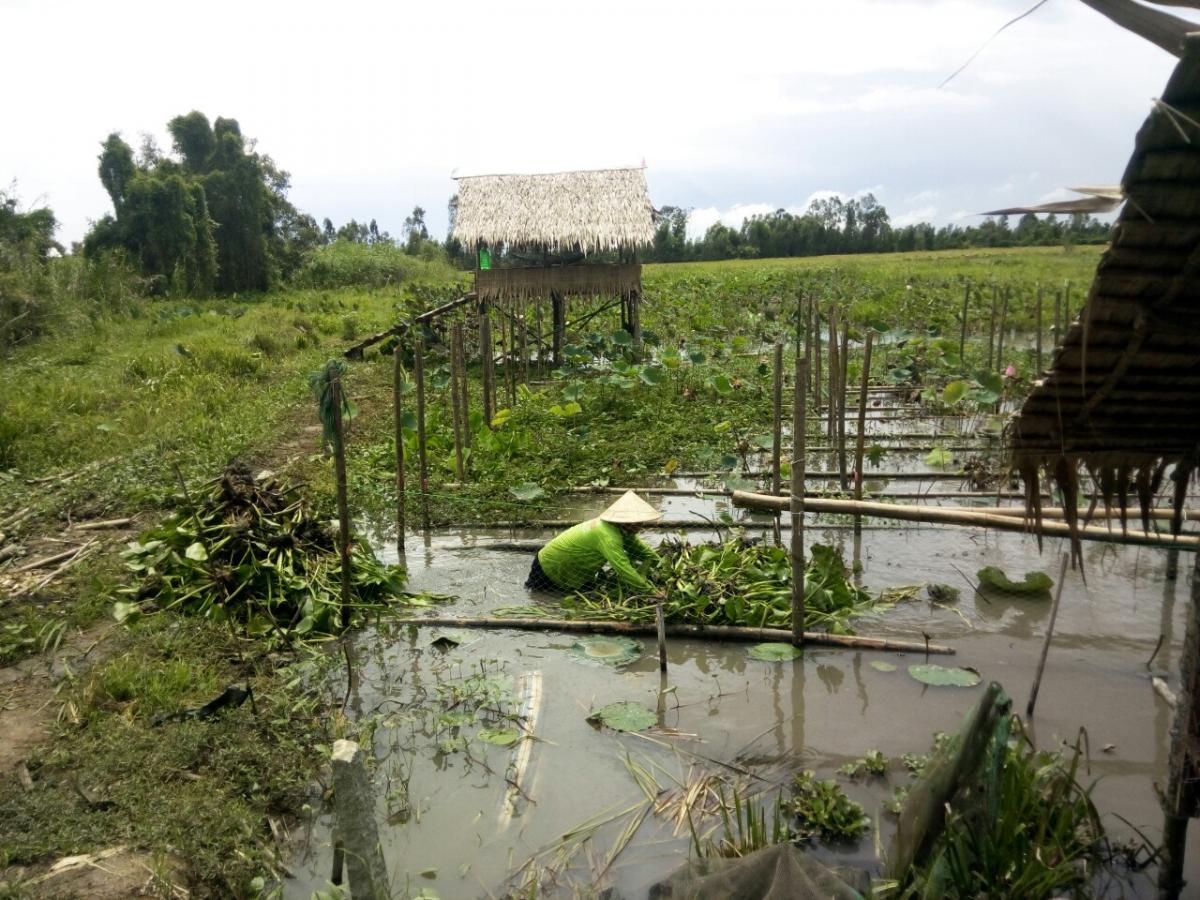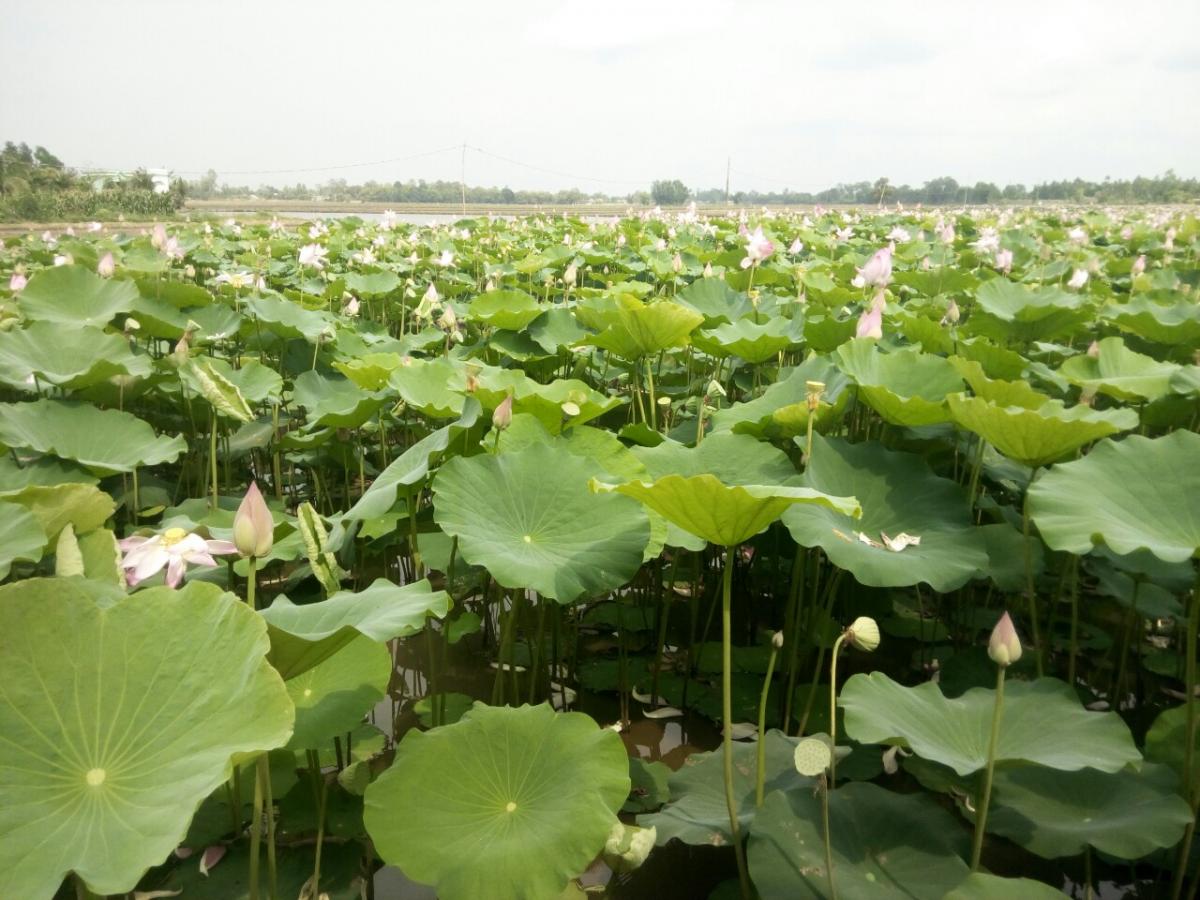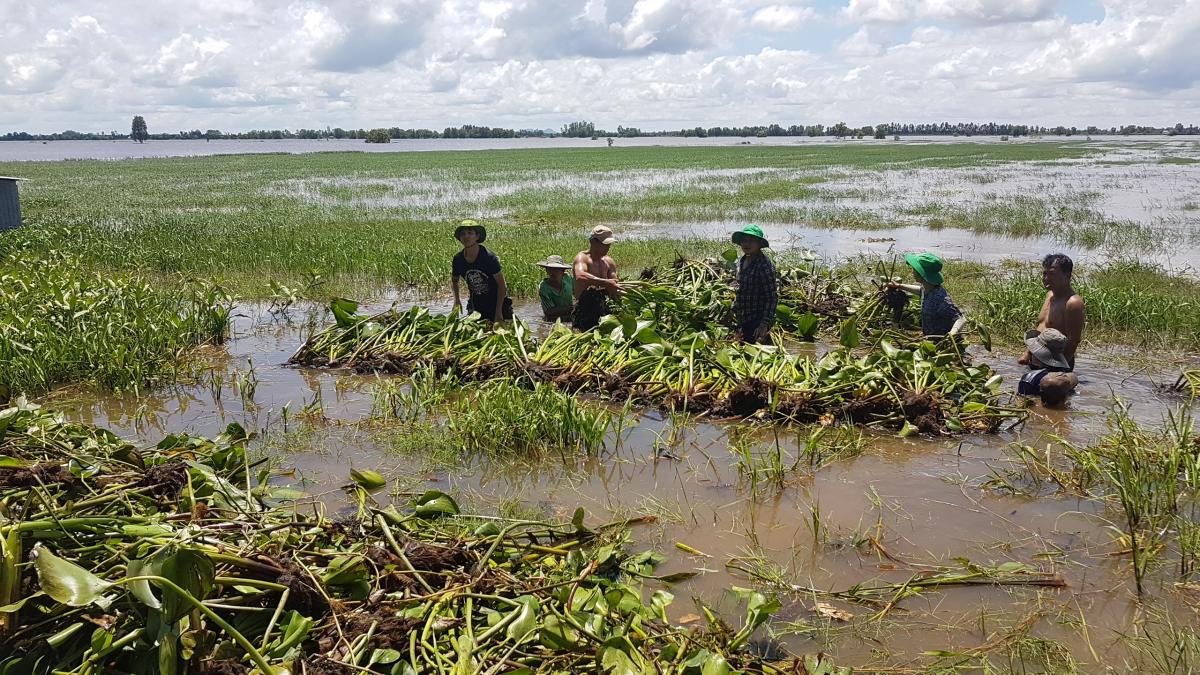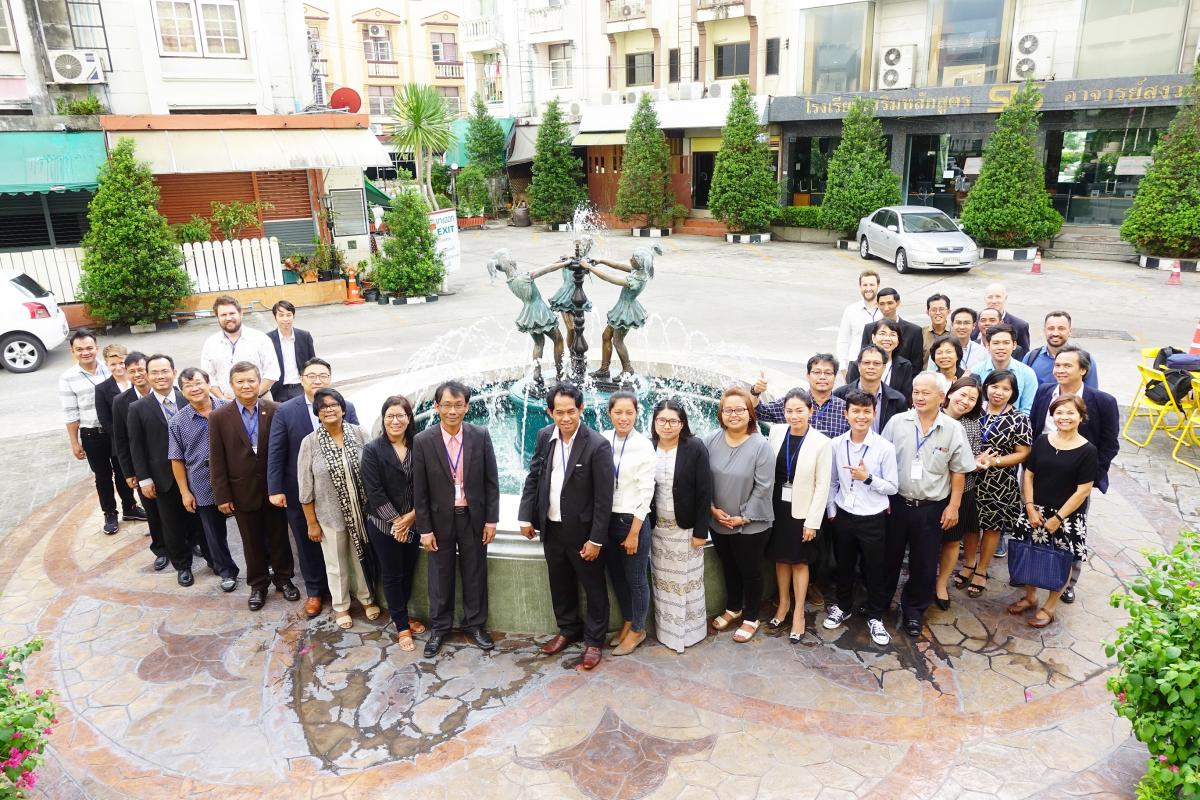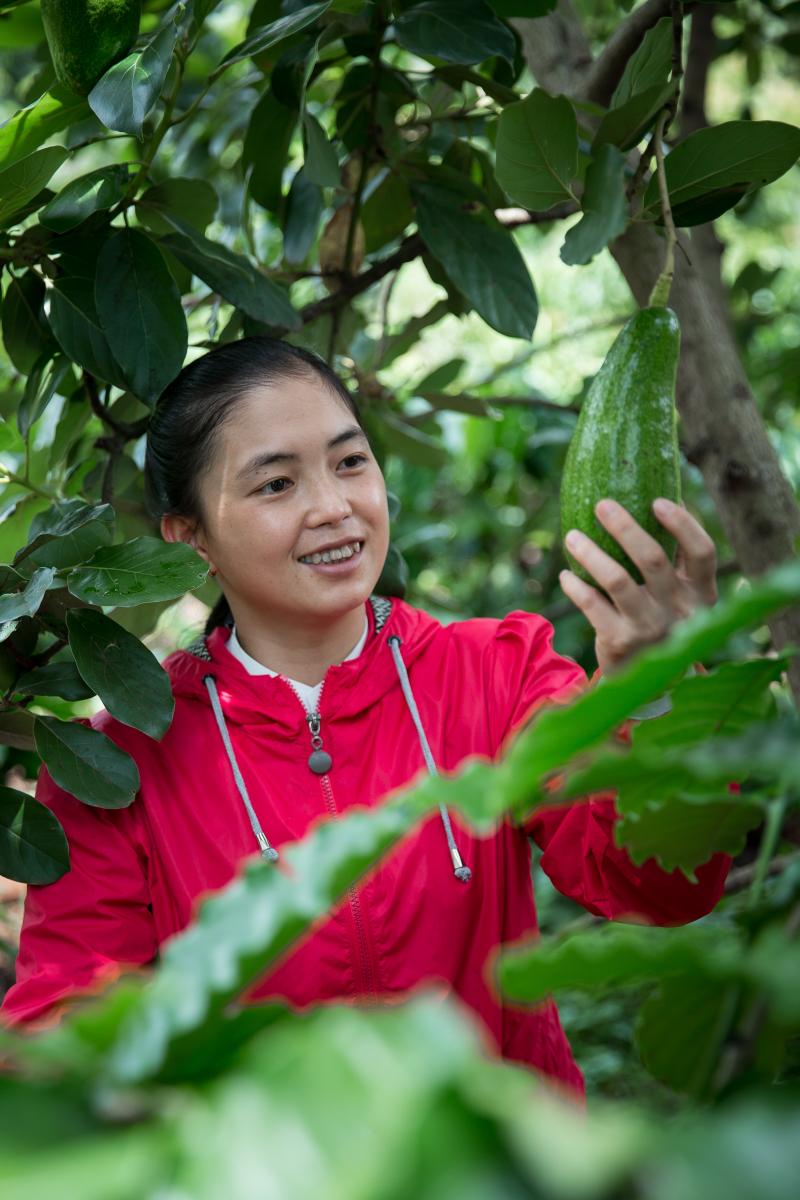IUCN-Coca Cola “Monkey Cheeks” project received the silver award for Best Environmental Excellence
In Sept 2020, the 12th Global CSR Awards and The Good Governance Awards released the results of the winners online due to the Covid 19 pandemic. With 300 entries from 120 companies all over the world, a final selection of 48 companies were recognized with awards. Amongst the winners was Coca Cola Beverage Viet Nam who won a Silver prize for the category of Best Environmental Excellence for the project “Piloting flood-based livelihoods in support of a water retention strategy for the Mekong Delta” or the ‘Monkey Cheeks’ project in Viet Nam.
The Monkey Cheeks project has been under implementation by IUCN with the financial support of the Coca-Cola Foundation since 2018. The idea of the ‘Monkey Cheeks, originally supported by Coca Cola in Thailand, is used in Thailand to visualize wetlands as a temporary flood-water conservation area. This does not have a similar colorful metaphor in Vietnam, but the same idea of flood-water conservation or water retention has attracted a growing level of interest - from farmers up to policy makers - in Vietnam as a way to mitigate extreme floods and droughts in the Mekong Delta.
Over three years, the project objective is to invest in approximately 450 hectares of flood-based livelihoods, thereby conserving or restoring approximately 6.7 million m3/year of flood retention capacity. To achieve this, IUCN and Coca-Cola Beverage Vietnam formed a partnership with three upper delta provinces of An Giang, Dong Thap and Long An to train and assist farmers to adopt financially attractive, low risk, flood-based livelihoods which can be up-scaled in other rice production areas in order to increase flood retention areas in the Plain of Reeds (POR) and the Long Xuyen Quadrangle (LXQ). Scaling up the demonstrations will help restore some of the 4 billion m3 of water retention capacity that was lost in the decade between 2000 and 2011.
The project results from the last two flood seasons (2018 and 2019) have shown a farmer preference for diversified lotus farming livelihoods including: lotus-rice (farmers grow rice in the dry season after the floods recede); lotus-fish, intensive lotus (year round, lotus growing), lotus shoots, lotus silk yarn production.
In Dong Thap and An Giang Province, a total of 105 hectares of farming area were planted in 2018 with diversified lotus farming systems to profit from and conserve the flood waters according to farmer demand. The 105 hectares translates to 1.575 million m3 against the first year deliverable of 1.5 million m3 of flood-water.
In the 2019 flood season, Long An Province joined the other two provinces, and together, an additional 149 ha of diversified lotus growing area was planted. Lotus cropping was again the model most in most demand by farmers because prices for lotus products remained stable despite an expansion of growing area. The 149 hectares translates to approx. 2.1 million m3 of conserved flood-water.
In total, 107 farmers have been trained and 76 farmers have received direct project support. Incomes of the supported farmers have been improved because of the profitability of the diversified lotus farming systems (an average of approximately 681 - 890 USD/ha for their lotus crops which represented around 50 - 62% higher profit than an alternative second rice crop at 340 USD/ha).
Thanks to the innovativeness of the project idea as well as the above-said positive results, the Monkey Cheeks project was selected out of the nominations of 120 companies globally to receive the silver award for Best Environment Excellence of the 12th Annual Global Summit and CSR Award. The award has recognized the efforts and commitment of Coca-Cola to improve environmental and social conditions in Viet Nam and IUCN is delighted to continue the collaboration with Coca-Cola to finalize the project outputs and upscale the idea across the upper delta area.
